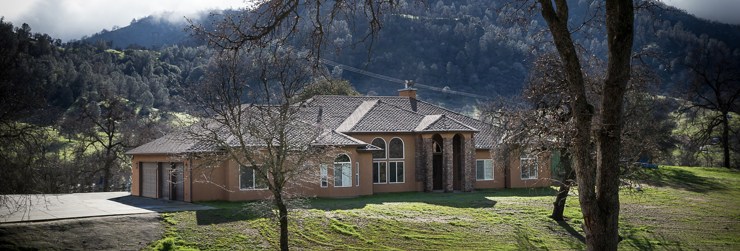Maybe you’ve heard it. Drugs are not the addict’s problem they are the addict’s solution to a problem. In other words, substances are how individuals have tried to cope with the problems in their lives. Loneliness, boredom, trauma, pain, anger, depression, anxiety, mental health, and so on. A person with an addiction needs to blot these things out. It just so happens they are killing themselves in the process. So how do you break this kind of deep physical and psychological relationship with drugs and/or alcohol? Well, it takes time. In long-term residential treatment (or inpatient treatment or more commonly “rehab”) people looking to get clean live at the treatment center, usually for a minimum of 28 days.
Here are 10 reasons why this approach to recovery from chemical dependency is beneficial.
Physical
-
You Receive Medical Assistance
First and foremost, detoxing from addictive substances without medical supervision is dangerous. As well withdrawals (http://www.webmd.com/mental-health/addiction/alcohol-or-drug-withdrawal) can make it extremely painful. With a medically assisted detox, the process will be managed safely with the least amount of discomfort as possible. Beyond that, in high quality long-term residential treatment, the medical supervision continues throughout the stay.
-
You Are Removed From a Destructive Environment
Your friends, your co-workers, your classmates, your favorite club, your cell phone, the route you take to work. All these things are connected to substance abuse in your life. Getting away from all of this for a period of time is a powerful way to begin to create new habits and life patterns.
-
You Don’t Have Access to Drugs or Alcohol
The fact that there are no drugs or alcohol available at a treatment center seems like an obvious one, but so many people who try to quit alone or go “cold turkey” simply overlook this fact. When a fix is available at any time to a person trying to get clean, those moments of weakness quickly spiral into relapse.
Mental
-
You Build New Habits
Habits are not created in a day, nor are they easily destroyed. They take time to root out—requiring guidance, care, and often, intensive therapy for people to begin to understand and unpack them. As well, it takes time to create new ways to see the world and interact with it. Most long-term treatment programs are built on this fundamental recovery understanding.
-
You Get Multiple Therapy Options
Addiction recovery is never “one-size-fits-all.” Every person is unique and will require a program tailored to their needs. Most rehabs offer multiple options for healing (these are often referred to as modalities). The extra time affords you the ability to work with a therapist and discover what works best for your particular personality, outlook, and story.
-
You Have Constant Support
The staff at a treatment center is very often the reason individuals cite for their success. At a high-quality inpatient program, the staff (directors, case managers, counselors, etc) are there for you pretty much 24 hours a day. Their experience and support are invaluable in your journey through your first 30 days of being clean. And they are a solid foundation for your transition into the next 30 days and the rest of your life.
-
You Get Tools for the Transition
Long-term residential treatment is extremely structured. For some, this kind of environment has been absent for a lifetime. The structures, as well as the programs, are carefully designed; they are models and tools for life back in the real world.
Spiritual
-
You Create Camaraderie
Similar to a lack of structure, many people with addictions have been lacking the support that comes from others who are also on the path to recovery. Friendships that form in rehab will often last long after the initial experience and continue to be a source of health and healing in life.
-
You Explore Deeper Healing
We are talking about long-term issues and long-term personal struggles. Substance abuse has become the way for an addict to deal with deep emotional and psychological problems. These take time to work through. They take vulnerability. And there is no quick way to find the healing that comes from this kind of raw and brave work.
-
Have an Experience
A person with a chemical dependency needs more than a pamphlet. They need more than instructions on how to fight triggers. They need more than a top 10 list of why long-term treatment is necessary. They need a deep connection and adoption of a new set of beliefs about themselves and their lives. There is no formula for creating this experience, but the combination of caring treatment professionals, a unique and new environment, and the powerful emotional and mindful work that happens at a long-term treatment center offer more of a possibility for this kind of experience to take place.
Are you interested in more on what is involved in residential treatment at First Steps Recovery? Try this article: “Inpatient Drug and Alcohol Rehab”
Get Help Today
If you or your loved one is suffering from addiction and would benefit from our Fresno County inpatient rehab, call First Steps Recovery at 1-844-BIG-STEP (1-844-489-0836). Our intake specialists are available to give those in need a free assessment, matching individuals to the treatments that can help them to overcome chemical dependency.




